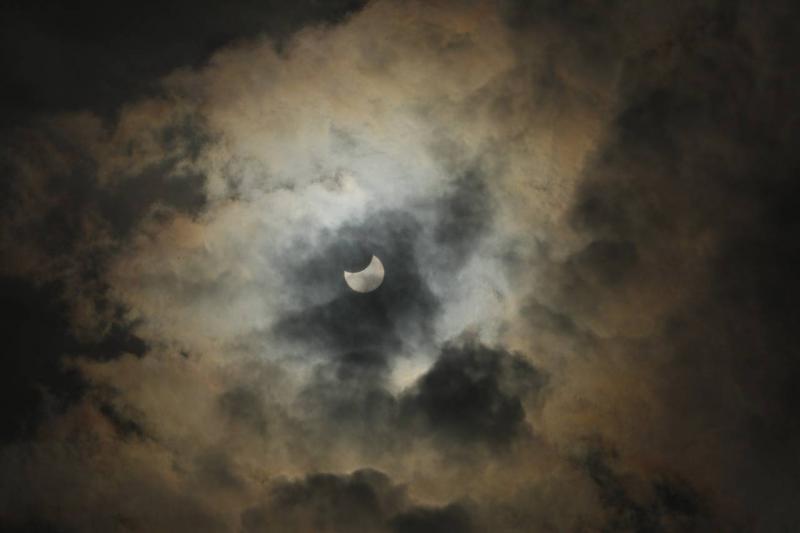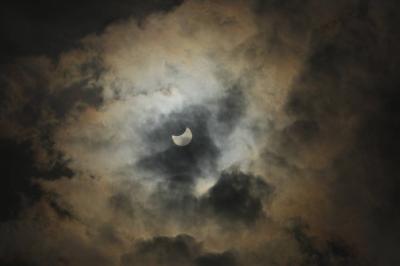Lebanon and several Arab countries witnessed a partial solar eclipse, where the moon partially covers the sun. In Lebanon, the partial eclipse began at 12:54 PM and was visible to the naked eye, lasting until 3:20 PM. This partial eclipse is the sixteenth of the twenty-first century and the second this year. The Ministry of Public Health warned citizens against looking at the sun directly or through glasses during the partial eclipse.
Currently, the world is experiencing a partial solar eclipse that covers vast areas of the northern hemisphere, a phenomenon lasting two hours that will not lead to complete darkness, but those wishing to observe it must exercise caution. The phenomenon began today at 08:58 GMT in Iceland and will end at 13:02 GMT off the coast of India, passing through Europe, northeastern Africa, and the Middle East, according to the French Institute of Celestial Mechanics and the Astronomical Calendar Calculation at the Paris Observatory.
A solar eclipse occurs when the sun, moon, and earth align in a straight line. When the alignment is nearly perfect, the moon's shadow cone touches the earth's surface, completely blocking the sun's disc, resulting in a total eclipse. However, this time, as stated by the Paris Observatory, "the moon's shadow will not touch the earth, and it will not be possible to see the complete disappearance of the sun's disc anywhere."
Astronomer Florent Deleflie from the Paris Observatory told AFP that at the peak of the expected eclipse over Kazakhstan, the sun will be obscured by 82.2%, "but that will not be enough to create complete darkness in broad daylight." He pointed out that "to begin feeling darkness in the sky and perceive a sort of cold light, you need at least 95% obscuration of the sun." Residents in the affected areas will be able to see the eclipse, provided the weather is good, by looking at the sun through suitable and new glasses to avoid eye burns, or by using magnifying tools (binoculars or telescopes) with filters available at centers organizing observations.




